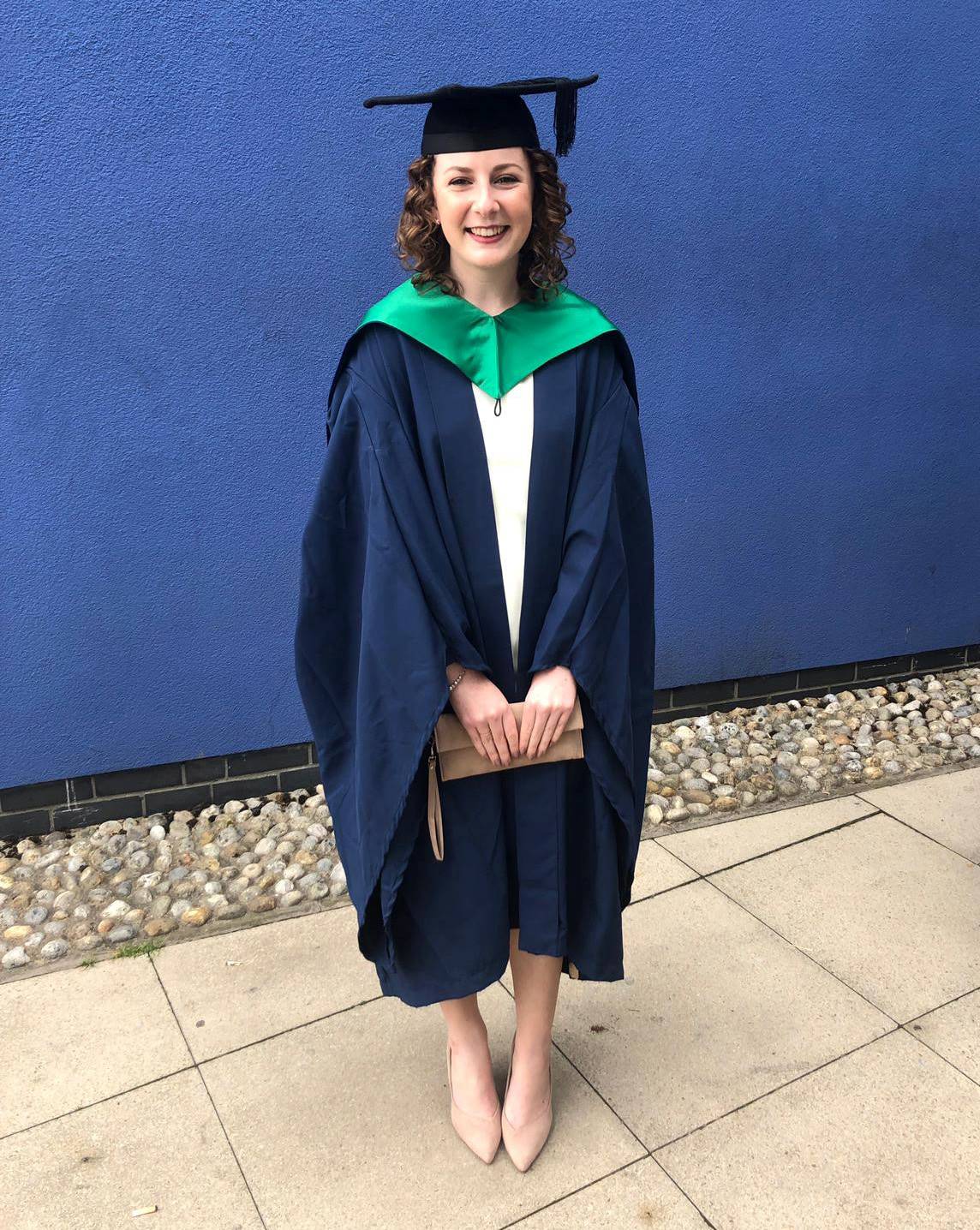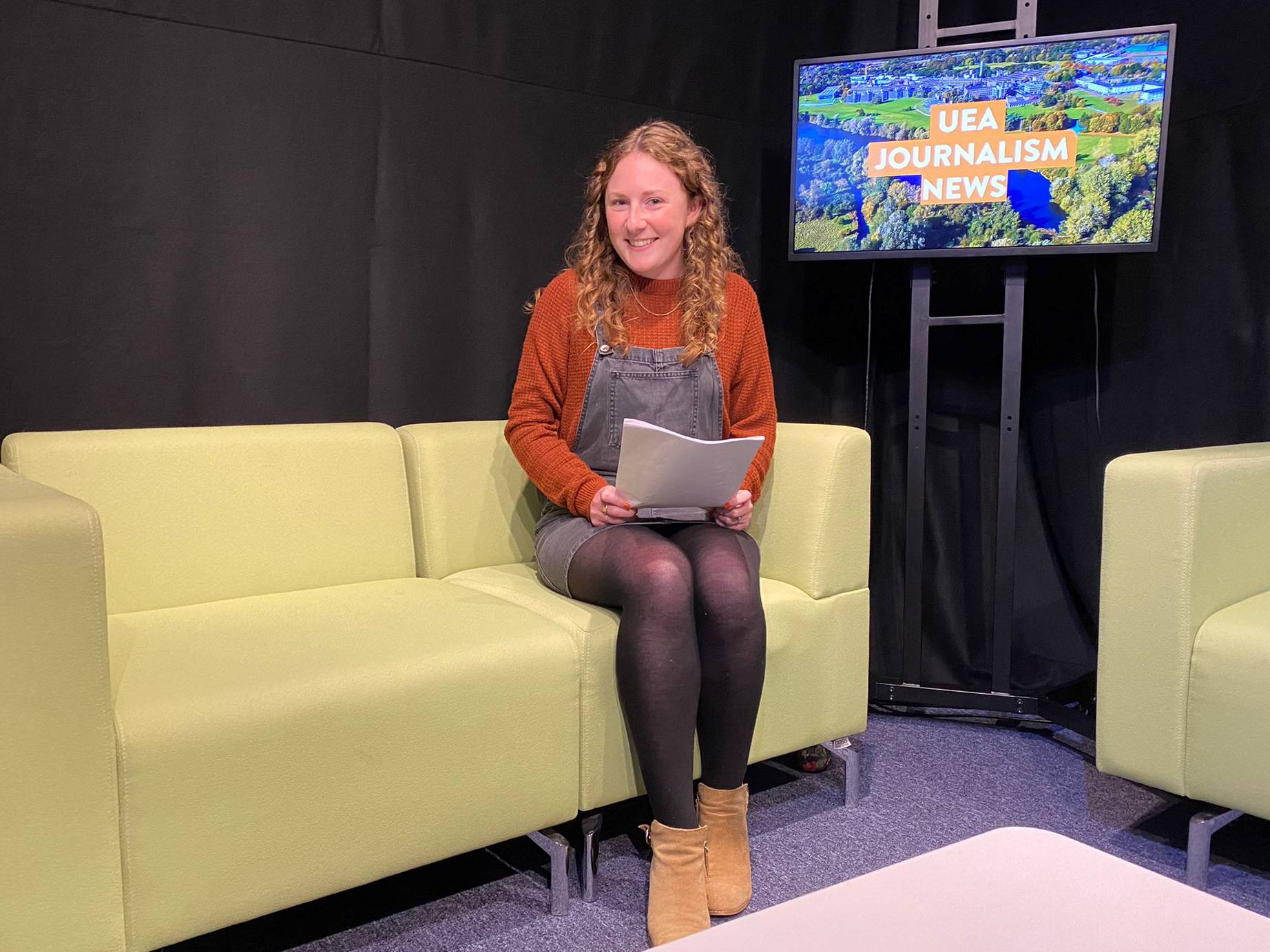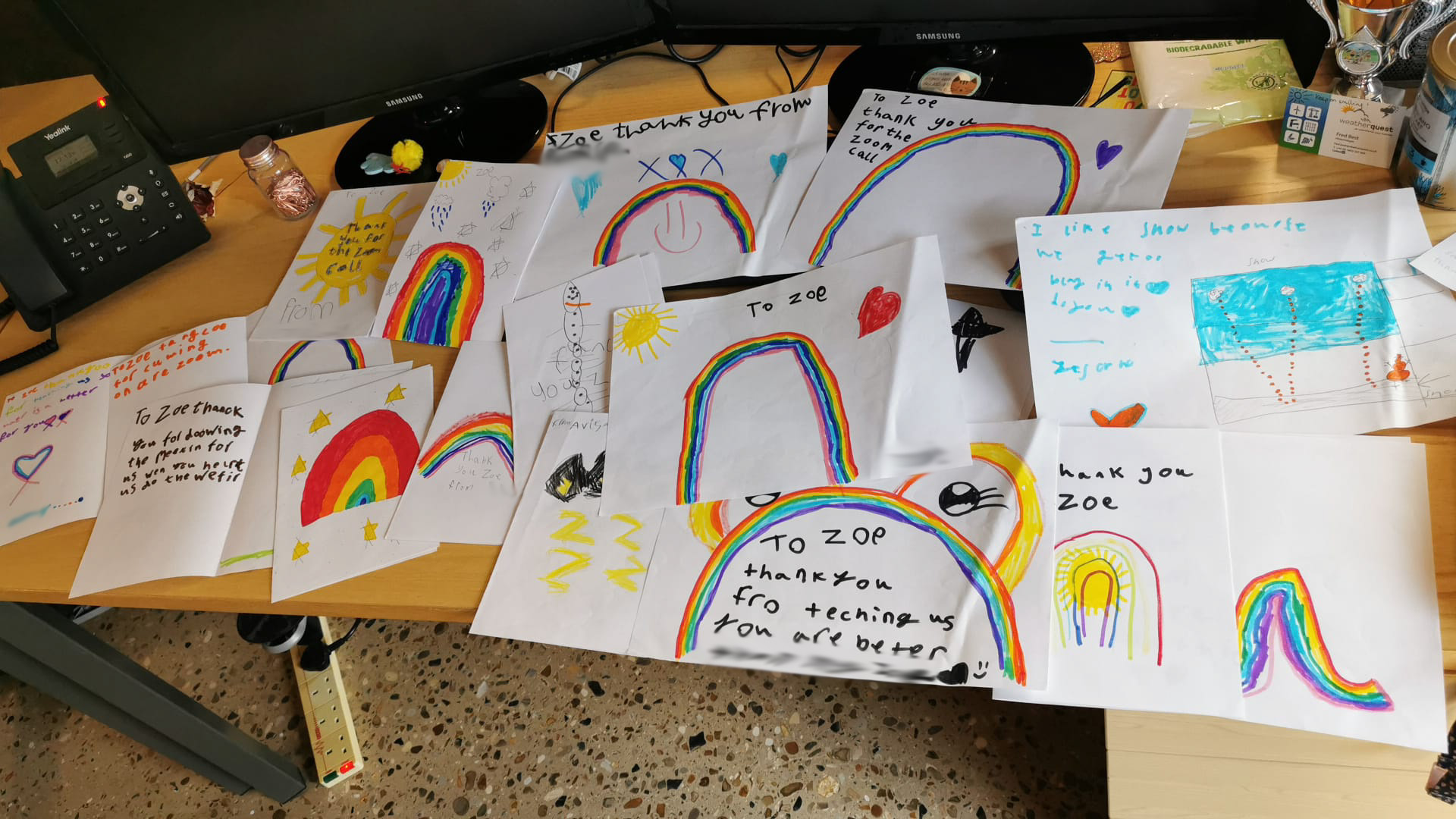)
Zoë’s last day working as a meteorologist at Weatherquest
February 11 is the International Day of Women and Girls in Science. It is a day to celebrate and honour women’s significant achievements in science, as well as place a significant focus on girls entering Science, Technology, Engineering, and Mathematics (STEM) careers.
Aligning with this day is the start of the Norwich Science Festival, which returns on 11–18 February this year, and will be a week full of intriguing discoveries, engaging exhibitions and cutting-edge research.
As a woman in STEM herself, we spoke with Zoë Johnson, to shine a spotlight on her achievements and personal experiences studying at UEA and working in a STEM career. Zoë is a current MA Broadcast Journalism student, BSc Meteorology and Oceanography with a Year in Industry graduate (now known as BSc Marine Sciences), and previously worked as a Meteorologist and Partnerships Manager at Weatherquest. She told us all about getting mentorship from weather forecast legends, her future career plans involving climate change awareness, and explained why leading by example is so important for widening access to STEM pathways.
What did you enjoy about working at Weatherquest?
“My role allowed me to focus on all the meteorology aspects of the job, such as weather forecasting, which is what I love and wanted to do. Being a meteorologist for lots of other companies often means you're expected to specialise in one area, focusing on marine or aviation, but with a smaller company like Weatherquest, I got to do all sorts of different things on the side.
“I think the best thing about Weatherquest is that they have such a broad range of clients in so many different sectors, such as farming and offshore wind, so you really got to try everything. It was there that I got to write weather forecasts for newspapers and started thinking that I’d like to do this more. It was always quite fun; you’d get your name in the Eastern Daily Press (EDP) newspaper and a little picture of yourself to go with it. I also enjoyed kicking off a YouTube project called ‘The Farming Forecast’, which was a series designed to create forecasts for farmers across the UK, though it stopped when I left because they ran out of staff to continue it.
“It was also nice that the Weatherquest office was based at UEA, with some of the company’s founders actually being lecturers here. It was great – my boss was my lecturer and supervisor in my final year of my undergraduate degree.
“I also got to present the weather on YouTube, which was probably my favourite thing about working there, though it was and still is a challenge. I think some people come to presenting naturally, whereas others have to work on it a bit harder, and I was very, very nervous when I first started. However, I was lucky to have good mentorship from people like Chris Bell and Dan Holley, who both present the weather at BBC Look East, and Jim Bacon, one of Weatherquest’s founders and a legend in weather forecasting and presenting. The three of them taught me how to get involved and improve, and it’s definitely one of the areas I want to go into in future.”
How did your BSc Meteorology and Oceanography degree prepare you for the role?
“There were a couple of modules that helped me, which I think you can still do as part of an Environmental Sciences degree. They're now called ‘Weather Applications’ or something similar, but when I did them, they were known as ‘Meteorology 1 and 2’ and they were practical modules for learning about weather forecasting. We also had a field trip up to the Lake District which allowed us to go up and measure the weather there, which was really useful, as well as weather forecasting competitions to get involved in.
“All of this meant I’d already learned some of the basics when I left university, but as a meteorologist, I think a lot of learning is also done on the job as well. The BSc gave me good building blocks but the rest of it involved going out and getting that real-life experience. I feel like I still have a long way to go with confidence with things like weather presenting, and that's what I'm hoping to gain as part of the MA Broadcast Journalism course. Fingers crossed!”
 Zoë Johnson’s BSc graduation day in 2019
Zoë Johnson’s BSc graduation day in 2019
What initially sparked your interest in STEM?
“I think some people will say ‘I always knew I wanted to do this’, but I can't pinpoint the exact moment for myself. I guess it’s always been something I wanted to do, because I was always interested in the weather and enjoyed being outdoors.
“I also always liked science and maths at school, so it seemed like a good way to go into a science-based subject, although I wouldn't say I'm a natural scientist. A lot of my MA classmates come from English-based degrees and I'm not that either – I think I'm stuck somewhere in the middle of that.
“I try and get involved with STEM where I can and when possible, because I think it's really, really important to inspire younger people and a more diverse range of people. I found that when I became a meteorologist at Weatherquest, the people involved in that area (including myself) weren’t particularly diverse; it was all very white and there was a lot of men involved – I was the only girl there at the time. I think that's why it was important for me to get involved in STEM. You've got to try and address this from the roots and inspire people at a young age if they want to follow that sort of career path.”
Why did you decide to return to UEA to study?
“One of my main reasons for choosing the MA Broadcast Journalism course was because I'm really interested in climate change – that’s one of my core interests – and I do a lot of stuff surrounding that already in STEM, such as talking to children about climate change. The media have a lot of power that they could wield and yet I don’t think the topic of climate change gets the coverage it deserves.
“This course was a great opportunity for me to learn lots of different skills to become a journalist, hopefully to then bring climate change into the forefront of the news like it deserves to be. If it does inspire people to get involved and fight the climate crisis, then I'm here for it. That would be the ideal end goal really!”
 Zoë presenting student news at Broadcast House (Photo credit: UEA Journalism)
Zoë presenting student news at Broadcast House (Photo credit: UEA Journalism)
What have you learnt on the course so far?
“The course was definitely a surprise – it’s so practical, involved, and you've got a lot of teaching hours. I think when I first started I was a bit naive as to how much they teach us, because you end up with a thorough understanding of everything. Not just the equipment and technical side, which I had a very basic knowledge of at first, but also things like law. I never expected to be able to learn so much about that. As climate change can be considered a controversial topic, it’s so important to know laws and regulations if I want to work in a newsroom and be safe.
“It’s also brilliant how involved things like the news days are. They’re great, high stress at times, but a great experience for what they might be like in real life. I’ve also been lucky with my personal projects because I’m able to have a strong climate focus for my stories, such as the climate mural in Norwich City Hall and the climate film ‘Out of the Ashes’ by UEA’s Dr Rupert Read, as well as talk about things that really matter to me like sustainability and fashion.
“I'm very grateful to the lecturers for letting me have such free reign, particularly with the climate side of things. We did a whole news day focused on COP27 and they let me lead on that because of my previous experience which was amazing.”
What do you think will help widen interest and access, for girls in particular, to STEM subjects?
“I think getting involved in STEM and speaking to young people is really important. When I've been to STEM training events, they always say to us ‘you can't be what you can't see’. It highlights how you’re trying to show young people, school children and students that you can be a female meteorologist, you can do all the things that men can do, and that there is a diverse range of meteorologists out there.
“I also think it's important to show yourself that you can do it. I'm not particularly good at maths, which was something I always worried would set me back, which means whenever I'm involved with STEM career talks, I let people know you don't have to be the best at it. It's just important that you're enthusiastic. So yes, leading by example, and talking about your mistakes as well – I've got plenty of those to give examples of!
“I'm not by any means a model example, but I think supporting people and emphasising that you don't have to be perfect is really, really important. If you just show people, they’re likely to start thinking they can get involved and that the career pathway is open to them. That it's not just a certain type of person that can go into STEM – anyone can do it.”
 Letters to Zoë from schoolchildren about her STEM career talks
Letters to Zoë from schoolchildren about her STEM career talks

)